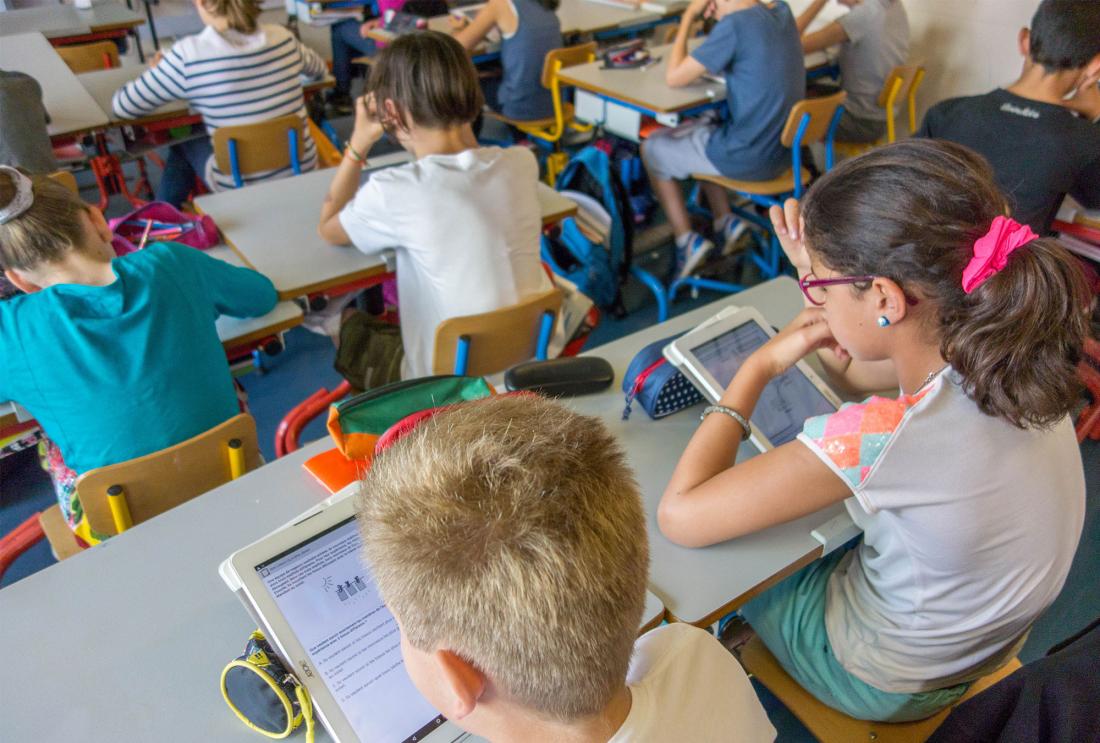Teacher Training and Student Achievement in Science: Evidence from France
- Teachers
- Empowerment
- Student learning
- Training
In-service teacher training programs are often used as a tool to improve student performance across cohorts. In partnership with the non-profit organization La Main à la Pâte, researchers evaluated the impact of an 80-hour in-service science teacher training program in France. The researchers found that student outcomes improved in the short-run during the year the teacher received the training and worsened in the year after teachers received the training.
Policy issue
Teachers often receive training throughout their careers, through programs known as in-service teacher trainings. These trainings aim to foster teachers’ content-specific knowledge and teaching methods to enhance the quality of instruction. Importantly, because one teacher can affect the performance of multiple cohorts of students over multiple years, trainings that improve teacher’s instruction skills could be a cost-effective education policy tool. Yet, whether, in which conditions, and for how long these programs can effectively improve teaching practices and boost student performance is still an open question.
Context of the evaluation
La Main à la Pate is a French non-profit organization that seeks to improve the quality of science and technology teaching in primary and middle schools. The NGO provides professional development courses for teachers through its network of Maisons pour la Science (“Houses for Science”), which are regional training centers based at local universities. These centers offer teachers an 80-hour training program, at no charge, over a two-year period. The courses are designed to introduce an inquiry-based teaching method. Rather than rote memorization, this method encourages students to learn science by developing empirical questions, testing them in hands-on experiments, and explaining their collected evidence. The trainings consisted of trainings at Maisons (local training centers), participant discussions, scientific conference attendance, and in-class educational support. The trainings took place during regular school hours; substitutes filled-in for teachers while they received trainings.

Details of the intervention
Researchers partnered with the non-profit organization La Main à la Pâte to measure the impact of its science and technology teacher training program on teachers’ practice, view of science, and on the educational interests and academic achievement of students.
Researchers identified third to fifth grade teachers in the Auvergne, Lorraine, and Midi-Pyrénées regions who expressed interest in participating in the training program. From a total 134 volunteers, researchers randomly assigned 67 teachers to an intervention group and 67 to a comparison group. Teachers in the intervention group were enrolled in the training program, which lasted two years, while those in the comparison group did not receive a training.
Researchers collected survey data on teachers’ practices and motivation and on students’ scientific knowledge, scientific skills, and scientific motivation one and two years after the beginning of the program.
Results and policy lessons
In the short-run, during the first year of the intervention, the training was effective in improving student outcomes and teachers adjusted some of their teaching practices. However, in the second year of the intervention, when teachers no longer receive support from the trainers, student outcomes are not improved.
Training program attendance: Across the two years of the study, 95 percent of teachers in the intervention group participated in some form of the training, receiving an average of 66 hours of training from the Maisons. The majority of teachers in the comparison group did not attend training sessions. Overall, teachers in the intervention group were highly satisfied with all aspects of the training.
Teacher practices: In order to measure the influence of the training on teachers’ practices, researchers measured whether a topic that was covered by the training was taught in the classroom. In the first year, teachers in the intervention group were 33 percentage points more likely to teach a topic that was taught in the training program; this reduced to 24 percentage points in the second year. Teachers also demonstrated greater knowledge about inquiry-based learning and implemented inquiry-based practices, with an increase of 0.24 standard deviations in the year after completing the training program as compared to the comparison group. The researchers did not find meaningful impacts on teachers’ reported implementation of inquiry-based learning nor their perceived importance of the practices taught in the training. However, given the small sample size of teachers, it is possible that the researchers were unable to detect impacts.
Teachers in the intervention group taught 0.17 more hours of science per week than teachers in the comparison group in the first year, 0.22 more hours in the second year. During the training years, the authors suggest that teachers used material from the training program, including hands-on experiments, and integrated it into their own lessons, but only for topics that were also covered in the training program. In the year after the training program, teachers in the intervention group did not implement more hands-on activities compared to teachers who didn’t receive the training.
Student outcomes: At the end of the second year of the teachers’ training, students in the intervention group outperformed students in the comparison group in scientific knowledge by 0.1 standard deviations. However, measures of scientific skills and motivation did not substantially improve. Furthermore, one year after the end of the training intervention, there is no impact on knowledge or skills, and motivation is 0.1 standard deviations lower among the students of teachers who received the training compared to students of teachers who didn’t receive the training.
In sum, while student learning outcomes improved in the year after teachers received the training, these effects do not persist. The researchers suggest this may be due to teachers facing challenges in implementing inquiry-based learning practices for topics not covered in the trainings.
